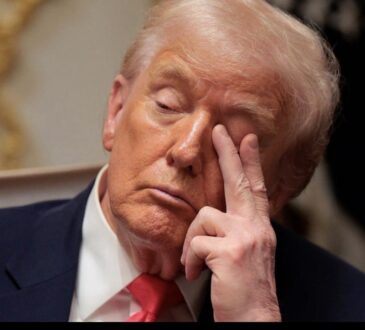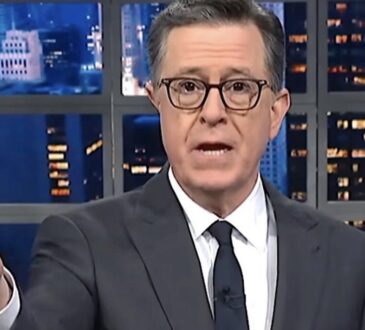
Therapists have suggested that former President Donald Trump appears to be increasingly preoccupied with the idea of death. His recent remarks about heaven, the afterlife, and his legacy seem to show that he may be struggling with a deep fear of mortality. Some of his statements, like when he said, “I may be in heaven right now as we fly in Air Force One.
I’m not sure I’m gonna be able to make heaven, but I’ve made life a lot better for a lot of people,” and “If you don’t have heaven, you almost say, ‘What’s the reason? Why do I have to be good?’” reveal a mix of reflection and anxiety that goes beyond ordinary campaign talk.
Clinical psychologist Rachel Menzies, co-author of Mortals, explained that Trump’s comments might be a sign of “thanatophobia,” a psychological term for death anxiety—the fear of one’s own mortality and the feeling of losing control over life’s inevitable end.
She noted that people often deal with this fear by believing that their achievements, success, or good deeds can somehow protect them from death or give their life a lasting purpose. In Trump’s case, his tendency to highlight his accomplishments and “making life better for others” could be his way of coping with this fear.
Menzies also pointed out that as people get older, they often begin to reflect more deeply on what their life has meant and what legacy they will leave behind. For some, this reflection can turn into a kind of mental “scorecard,” where they try to convince themselves that their life’s achievements will count for something even after they’re gone. Trump’s suggestion that his political or personal victories could somehow have spiritual weight fits this psychological pattern.
Psychologist Cynthia Shaw added that Trump’s age—79 years old—plays a key role in this mindset. She said that as people age, they naturally begin to think more about meaning, mortality, and what remains of their time. When Trump talks about heaven, Shaw believes he isn’t necessarily speaking from a purely religious standpoint, but from an emotional need to make sense of life’s final chapter and find comfort in it.
Another therapist, Gabrielle Ferrara, explained that death anxiety often intensifies when people are constantly reminded of mortality—through health scares, the deaths of others, or ongoing media attention. For Trump, being in the public eye and surrounded by news coverage about aging and health may be heightening that anxiety. Every criticism, rumor, or reminder of his age could subconsciously feed his fear of losing control or being forgotten.
Experts also caution that while it’s common for people to seek comfort through their accomplishments, this approach doesn’t truly resolve the fear of death. Menzies emphasized that accepting mortality, rather than trying to outsmart or bargain with it, is the healthiest way to cope. Acceptance means recognizing that life and death are both natural parts of existence—and that no amount of wealth, fame, or success can change that. It’s about finding peace in the present, not in what one has achieved.
Overall, the therapists interpret Trump’s recent focus on heaven and legacy as an emotional struggle with mortality. They see a man trying to reassure himself that his life—and all his victories will count for something beyond the physical world. But in the end, the experts agree that no level of power or achievement can shield anyone from the universal reality of death. What truly matters, they say, is learning to live with that truth and finding meaning that isn’t based on status or success.




